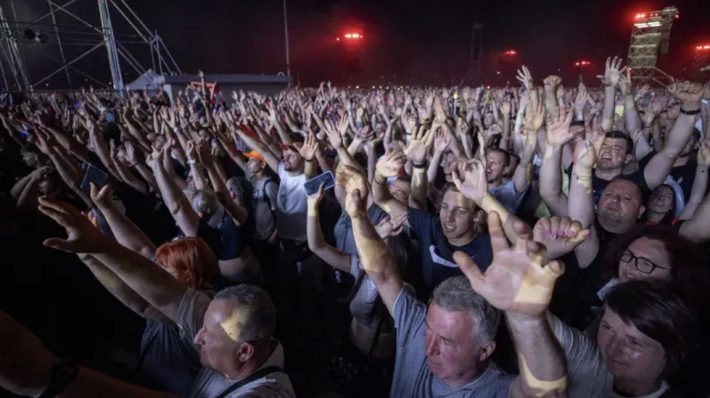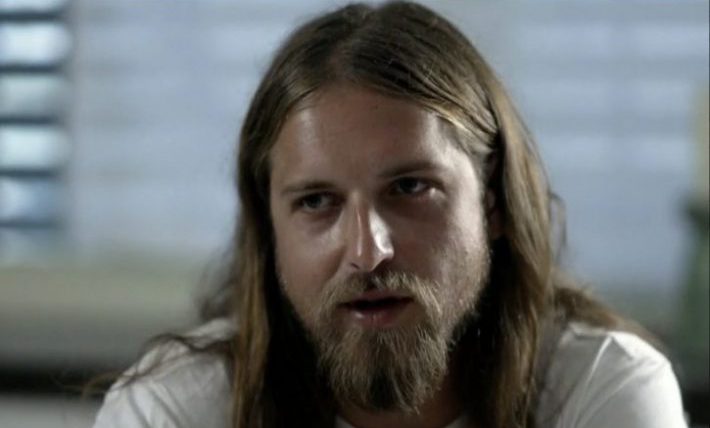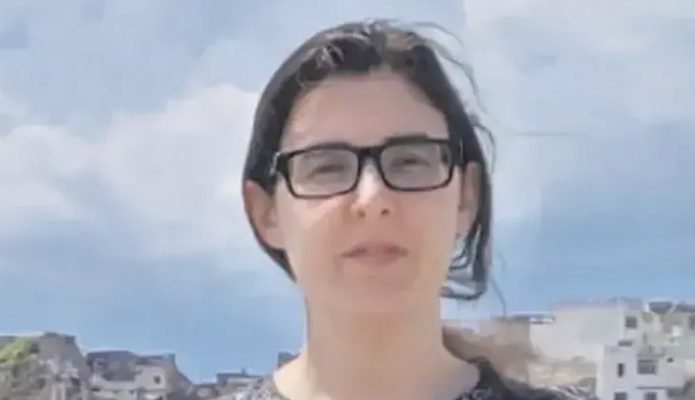Croatian right-wing singer performs pro-Nazi salute with hundreds of thousands of fans.
In an unsettling yet revealing moment for modern Europe, Croatian singer Marko Perković—long known for his far-right sympathies—led a crowd of nearly half a million in a concert marred by extremist symbolism in Zagreb on Saturday night. The event, touted as the largest in Croatia’s history, drew international scrutiny as Perković opened one of his signature songs with the controversial pro-Nazi salute, “For the homeland — Ready!”
This phrase, deeply rooted in the dark legacy of the Ustaše regime—a Nazi-aligned puppet state during World War II—evokes painful memories. The Independent State of Croatia, as it was officially called, was responsible for the genocide of hundreds of thousands of Serbs, Jews, Roma, and dissenting Croatians. Dozens of concentration camps operated under its brutal rule, leaving behind a scar that still haunts the region.
Despite these atrocities, Ustaše symbols have steadily crept into mainstream Croatian nationalist expression, especially over the past few decades. While Jewish communities in Croatia have continued to call for stronger laws against such displays, enforcement remains inconsistent. Courts have ruled that Perković—who performs under the stage name Thompson—can use the salute as part of his artistic performance, citing its association with Croatian nationalism during the 1990s war with Serbia.
The concern deepened when Croatian Prime Minister Andrej Plenković attended a rehearsal of the concert with his family. While not present during the main event, his attendance was widely seen as a tacit signal of leniency—or indifference—toward the singer’s inflammatory symbolism.
Perković addressed the crowd with a message framed in cultural pride, stating, “With this concert we will show our unity,” and urging Europe to “return to its tradition, to its Christian roots,” according to Euro News. The event’s aftermath was swift. Croatian authorities indicated possible prosecution for some attendees displaying banned symbols, and a Croatian handball player was dismissed from his team following his presence at the concert, HRT reported.
Public backlash followed from several prominent figures. Former Prime Minister Jadranka Kosor criticized the media and authorities for their complicity, lamenting, “Not only are the state and the city serving one man but the television stations are as well.” She expressed outrage that songs glorifying a “criminal state” were being normalized in Zagreb’s city center.
Croatian Ombudsperson Tena Šimonović Einwalter echoed the alarm, condemning the lack of institutional response. “This indicates that…a sufficiently clear message has not been sent that all expressions of hatred and glorification of the darkest periods of the past are unacceptable and illegal,” she told Balkan Insight.
Across the border, outrage resonated strongly. Former Serbian President Boris Tadić described the concert as a “great shame for Croatia” and the European Union, writing on X that it was “eerie” to witness such open glorification of fascist collaborators in the heart of 21st-century Europe. “It is especially devastating to see how many young people came…wearing the black-shirt iconography of the Ustasha movement,” he added.
The weight of history is especially grim: during World War II, approximately 80% of Croatian Jews were murdered—the highest percentage in any European nation except for countries under direct Nazi control.
While the concert stands as a stark reminder of unresolved historical wounds, the widespread condemnation and national reckoning it sparked may signal a turning point. The calls for accountability—from both within Croatia and beyond—highlight a deepening commitment to preventing the normalization of hate, and a determination to ensure that Europe does not allow its darkest chapters to be rewritten on the stage of populism.





